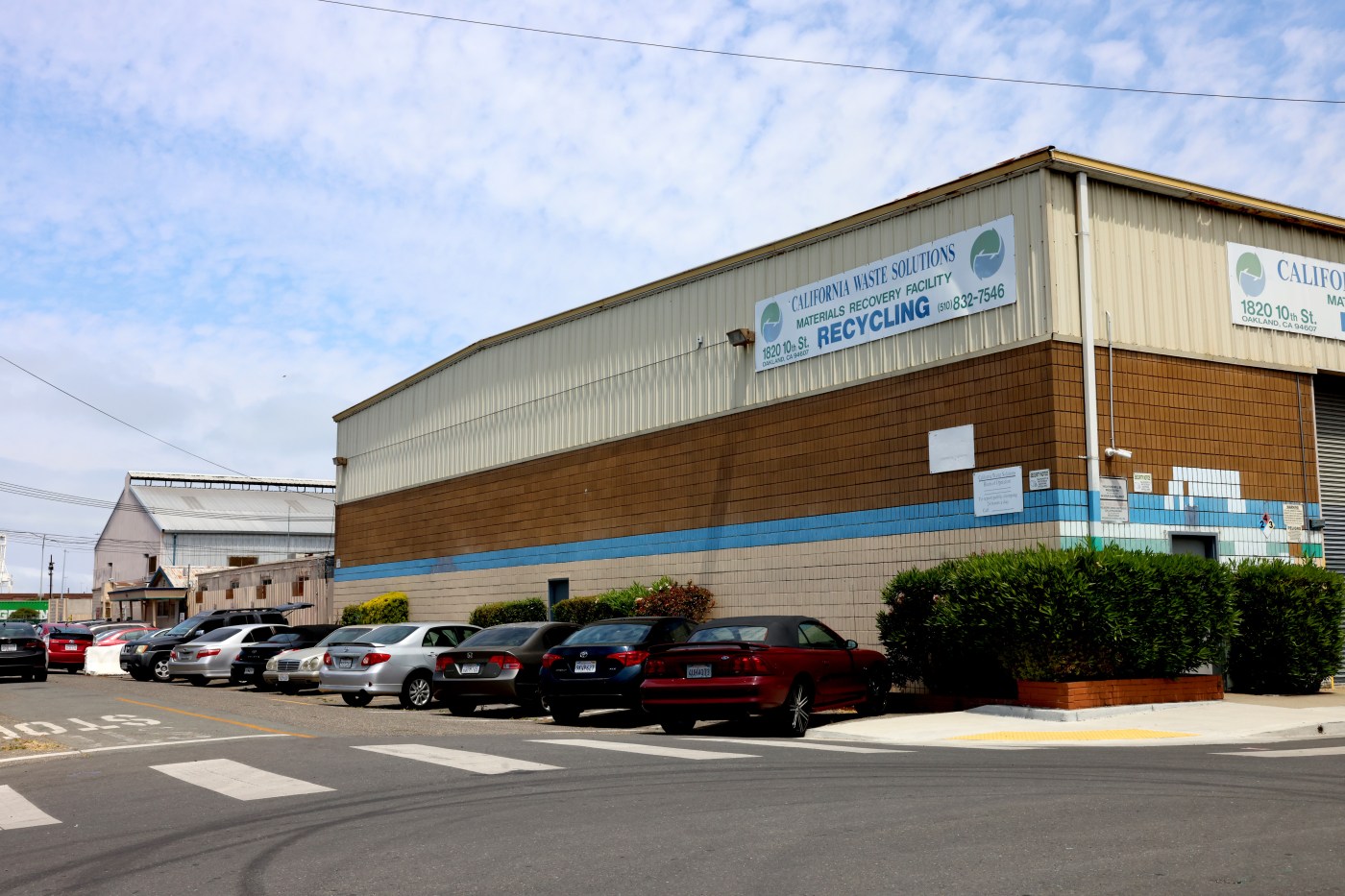
OAKLAND — The $8.3 million land deal for Oakland’s embattled recycling contractor to build a massive new recycling plant on the former Oakland Army Base is dead, months after two executives were indicted on federal charges partially tied to the project.
California Waste Solution’s bid to relocate the company’s West Oakland plants onto 12 acres of the ex-Army base’s North Gateway parcel was axed earlier this year by Oakland City Administrator Jestin D. Johnson, a city spokesperson recently confirmed.
The decision ends a long-delayed project that was thrust back into the public spotlight over the past year, when federal investigators claimed the land served as one cog of an alleged bribery scheme between former Mayor Sheng Thao and the CWS’ father-and-son executive team of David and Andy Duong. In January, the Duongs, Thao and her partner, Andre Jones, were charged with conspiracy, bribery, wire fraud and mail fraud, according to a federal indictment that alleged promises were made to “get land deal at Army base done from mayor staff.”
The deal’s demise also brings uncertainty to the future of CWS’ existing plants off 10th and Wood streets, in the Lower Bottoms neighborhood of West Oakland. For years, neighbors have complained about air pollution believed to be tied to the plants, where trucks dropping off recycling come and go. Studies have shown higher levels of asthma and other respiratory diseases in the area, situated not far from the Port of Oakland and multiple freeways.
Brian Beveridge, executive director of the West Oakland Environmental Indicators Project, was incensed by how quietly the city terminated the deal. He said a project of such importance “should have gotten every opportunity to get done.”
“This has been a 23-year exercise in a community communicating a vision for itself — and the city listening and then doing what they want to do,” Beveridge said. “It makes me angry that we have a city government that doesn’t care what the community thinks.”
Councilmember Carroll Fife, who represents West Oakland, said CWS’ failure to live up to its ends of the agreement left the city no choice. Still, she expressed unease at the notion of CWS not moving further away from homes, “because the community wants them out of the neighborhood, which is completely sensible.”
Fife added that “we are looking at other opportunities for use of that parcel, and we have some pretty strong irons in the fire.” She did not elaborate, except to say they do not involve housing, despite her previous support for turning the land into a village for people experiencing homelessness.
The Port of Oakland — which owns other parts of the former Army base — and a metal recycling company, Custom Alloy Scrap Sales, or CASS, “have expressed an interest in the site,” said Sean Maher, a city spokesman, in an email. He did not respond to follow-up questions seeking further details.
A statement from a California Waste Solutions spokesman called the move “deeply disappointing,” and criticized the city for “unilaterally” ending the land deal. The statement said the company had offered to pay the full $8 million purchase price “as a demonstration of our commitment to move forward with the recycling facility project.” CWS already spent $5 million on permits, environmental studies and other work, according to the statement.
“This project represented an opportunity to build a locally operated, sustainable recycling facility that would serve the entire city, create hundreds of high-quality union jobs and generate significant tax revenue,” the company’s statement read. “We remain hopeful that the city will re-engage with CWS to revive this important initiative — and avoid yet another missed opportunity for Oakland.”
The project has been hampered by numerous delays since the company first proposed moving its plants to the North Gateway parcel in 2012. Even though CWS blew past plans to break ground in December 2022 and January 2023, the company’s extension requests were granted.
Ahead of one such extension in 2023, Thao’s then-chief of staff took a personal interest in the property, asking to coordinate a high-level meeting on it, according to a trove of emails previously obtained by this news organization. A year later, in February 2024, David Duong requested another extension from Thao while lamenting “unprecedented challenges certainly unforeseen” when CWS entered into a lease and development agreement with the city before the coronavirus pandemic.
More recently, the city’s tone appeared to shift.
On March 14, 2025, less than two months after being indicted, David Duong again asked city leaders for an extension to close on the property. Much as he had in 2024, David Duong cited “extraordinary and unprecedented challenges,” including rising material costs, high borrowing rates and the economic uncertainty brought about by “federal trade policies and tariffs.”
In the process, Duong asked the city waive its demand that CWS begin construction on the project within 60 days of closing the deal. Such a change would be significant, given that the sale of the land is entirely contingent on the company building its new plant, while giving up its rights to operate at its current plants.
Alternatively, the elder Duong said CWS could just close on the property and pay the full $8.3 million price for it, as long as the city waived that groundbreaking requirement.
In a written response on March 25, Johnson, the city administrator, countered that CWS had already been about a month late in submitting numerous documents demonstrating progress on the project, including evidence they had insurance and a construction contract. He ordered the company to hand over the material within 60 days, and pay the $425,000 extension fee.
Johnson terminated the deal, according to a letter sent to CWS on May 28. In it, Johnson said that the recycling company never provided the outstanding documents or sent payment.
Jakob Rodgers is a senior breaking news reporter. Call, text or send him an encrypted message via Signal at 510-390-2351, or email him at [email protected].